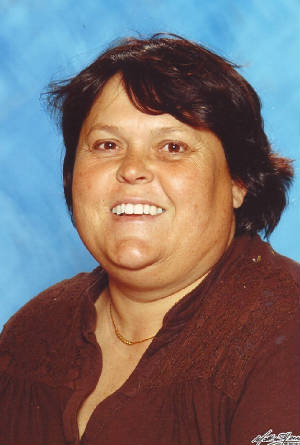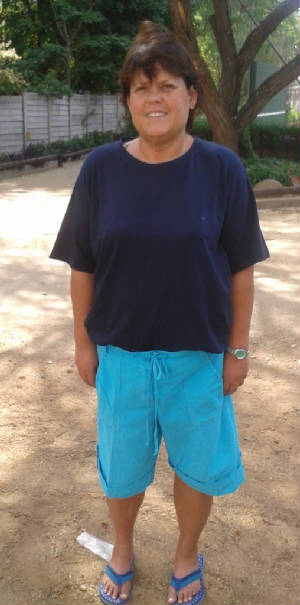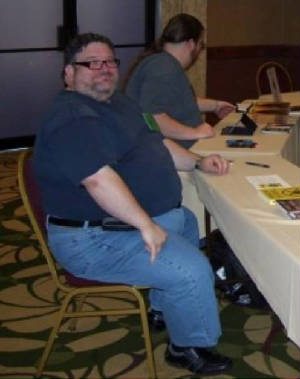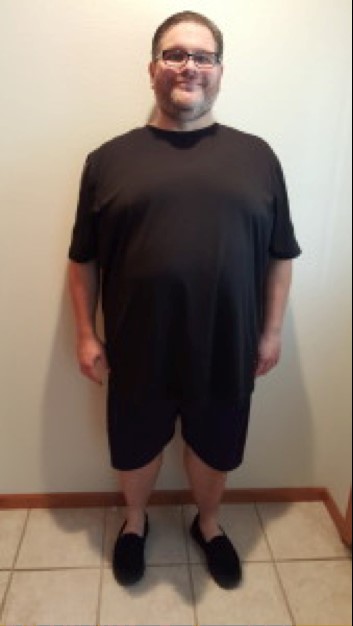 |
|
Recommended Dietary Testimonials
|
|
Elisabeth & Shannon
|
 |
 |
|

Two moving testimonials on their success with a low carb diet with fasting, Elisabeth and Shannon
https://intensivedietarymanagement.com/elizabeth-patient-profile/ 1/7/16
I grew up in South Africa; over-weight most of my life with periods of weight loss (yo-yo dieting). In 2002 I went
on the X-Diet, a fat-free high carbohydrate diet, for 2 years. Early in 2004 I moved to a new job in Botswana, a neighboring
country, and had to have a full medical check-up after which I was diagnosed with diabetes, high cholesterol and high blood
pressure. I was put on medication for all three (at this stage my father was also on medication for all three and my siblings
were on some of these medications too). Only later did I discover how many people/friends who had been on this X- Diet were
diagnosed as having diabetes after a time on it.
I started out on Glucophage (metformin) twice a day, but didn’t really worry too much about my diet assuming
the medication would solve it all. Weighing 105kg I began a low carbohydrate, severely calorie restricted diet, (about 100g
meat or 2 eggs, and about a cup of green and white vegetables 3x per day.) My weight went down to 75kg over about 18 months,
but the diet was so restrictive it was not sustainable so inevitably my weight steadily climbed up. I also developed many
allergies and was on a lot of cortisone, never realizing or being told that this would affect my blood glucose levels, which
were at about 16 mmol/L on most days.
At the end of 2010 I was very ill and went to see a physician, in South Africa. My medication was increased. Although
I had no pain I was horrified when an ultra-sound showed up a non-alcoholic fatty liver and a 2 cm kidney stone. In April
2011 I went to Johannesburg where the kidney stone was broken up by laser. The night before the surgery the urologist gave
me a large dose of cortisone and on the morning of the surgery a physician came in, measured my glucose levels at 20 mmol/L
and said I needed insulin injections. He put me on Lantus along with the Glucophage XR and said I must just increase the dose
until my blood glucose level was down, with no other explanation and so I did just that!
However, it wasn’t really helping and so at a stage another physician changed my medication to Levemir at night
and Novorapid before meals, as well as the Glucophage XR. Again no one educated me properly and as my glucose measurements
became higher and higher I just increased the dosage.
Late in 2011 I went to see a diabetic dietician in Pretoria. By this time I was injecting 120 units of Levemir every
night and 80 units of Novorapid with each meal as well as the Glucophage XR morning and night. She gave me a diet plan with
6 small meals/day with plenty of Low GI carbohydrate. My morning fasting glucose measurement remained above 10 mmol/L and
after some months in 2012 she referred me to a doctor in Pretoria, again a diabetes specialist.
At this time my weight was about 96kg.
Fasting glucose 9.5 mmol/L. HbA1c 7.6%.
Since starting insulin, no matter what I did or how hard I exercised I could not lose weight as easily as I had done
before. Even when I quit carbohydrates, I was convinced it had something to do with insulin. I became disillusioned with these
doctors. They just seemed to be doing and telling me the same old same old. Eventually, I changed to Glucovance 5mg/500mg,
which I took along with my insulin.
Fast forward to January 2015, still weighing about 96kg and having attended gym religiously since 2010 never moving
the scale less than 90kg, I had had enough. I began by cutting carbohydrates again and the gym I had been going to started
a 30 minutes high intensity interval training class, and suddenly on the days that I went to this class I would wake up between
10pm and midnight because my glucose levels were dropping to about 2.3 mmol/L. So as I was concerned, I researched a bit on
the internet and at the same time came across an article by Dr. Fung, who had just presented at the LCHF Convention in Cape
Town, which said Type 2 diabetes could be reversed. I watched his YouTube presentations
and for the first time ever here was something that made sense. I immediately decided that quitting insulin was my first priority,
but I could not find a single dietician, doctor or physician in South Africa that would help me. So I read more of his IDM
blog and started fasting towards the end of February with low carbohydrate meals.
I cut all my insulin doses in half, but continued with the Glucovance, I also quit the statin I was taking.
I first began with 3 days fasting a week with a Sunday night to Tuesday morning, Tuesday
night to Thursday morning and Thursday night to Saturday morning. I drank coffee with cream in the morning when fasting, and
water with a slice of lemon in it the remainder of the day. I ate egg and bacon in the mornings at first as I have always
been told you have to eat breakfast! Later on the more I read the more I learnt that
you don’t need breakfast so I changed my fasting regime and only ate one meal in the late afternoon. However, my
glucose levels continued to drop at night so I quit all injected insulin, but continued the Glucovance with fasting and LCHF/Paleo
type eating (REAL FOOD). By now my weight was slowly coming down and the needle
on the scale was less than 90kg. I now weighed 87.8kg and had lost a total of 6.2 kg (2.9%) body fat and a total of 35cm.
In April I went to visit my family in Texas and did not deprive myself at any time, however, I tried to make wise
food choices, (not eating fries or the bun of a burger, no sodas, etc.) and fasted when I had gone over-board. I took along
my insulin, just in case, but didn’t need it; however, I continued using the Glucovance and continued to get very low
glucose levels at night. On my return, I changed back to Metformin 500mg twice
a day and continued with the HIIT, more intense fasting and LCHF/Paleo. Then on reading one of the question and answer sessions
with Dr. Fung on www.dietdoctor.com I realized that I should not be using Metformin on fasting days, so I quit that too. My weight was now 79, 7 kg
and I had lost a total of 13.03 kg (7.3%) body fat and a total of 46.5cm.
Fasting glucose 7.6 mmol/L. HbA1c
6.2%.
At one stage Dr. Fung mentioned Marty Kendall’s
page [https://optimisingnutrition.wordpress.com/] on ketogenic diets. For me this way of eating was too limiting and
not sustainable. I need to stick to something that suits my needs. I enjoy fruit, but have tried to stick to strawberries
with a bit of cream, with the odd peach or apple and use the fruit as my candy. If I’m out and presented with a few
carbohydrate choices instead of eating all of them I will decide as to which one I really feel like and have a small portion.
I try to eat real food most of the time, nothing processed or from boxes, tin cans, packets, etc. I live alone and also try
not to keep any tempting food in the house, just to make it easier on myself.
And so I continued fasting and in August I thought I had finally found a physician in Pretoria to help me. I was often
dizzy, but after again reading an IDM blog I realized this was not from the fasting, but more than likely from my blood pressure
coming down. How mistaken I was about getting the help I needed, apart from confirming my suspicion that I was now in full
menopause at the age of 49 and taking my blood pressure and taking me off blood pressure medication I got a lecture. I was
told how I now needed HRT, how important statins are for me, and how I could not exercise while fasting, and please I must
eat carbohydrates!
I have continued reading the IDM blogs, dietdoctor.com and a few others, educating
myself, as knowledge is power, and astounding various people in various ways, including some friends in the medical profession
that were too polite to tell me that they thought I was nuts!
It’s the end of November and I now weigh 68kgs and have lost a total
of 20.64 kg (12.40%) body fat and a total of 77.5cm.
Fasting glucose 5.9 mmol/L. HbA1c
5.3%.
I realize that I am always going to struggle with my love of carbohydrates, especially bread and fruit, but I know
that this way of eating is sustainable and that as Dr. Fung put it, there are times of feast, but it is easy enough to balance
these with times of famine (fasting). I feel so much better for the weight lost and have
lots of energy when fasting.
My biggest frustration this year has been that I could not find a single physician, doctor or dietician in South Africa
that has been willing to help me, even after I had made it clear that they did not have to buy into what I was doing, just
assist.
Dr. Jason Fung: Congratulations, Elizabeth on your terrific results. It is amazing to realize that you went from taking
360 units of Insulin daily as well as oral medications to no medications at all with
a HgbA1c of 5.3%.
That is truly impressive. The indescribably sad part
about it is that you achieved this amazing feat despite, not because of the health professionals.
In fact, had you listened to ‘health professionals’ at any point in this journey, you would still be injecting
yourself 4 times a day – overweight, diabetic, sick and, to tell you the truth, slowly dying.
You successfully reversed your type 2 diabetes in a matter of 10 months! This is a feat
that your doctors think is impossible! Not only is T2D reversible, sometimes it is quickly reversible
[long fast are after bariatric surgery].
I always suggest getting tight medical supervision for any type of dietary changes and especially with any medication
changes. However, I do understand that it is not always easy to find such help. We have recently started our ‘Affiliates’ [https://intensivedietarymanagement.com/affiliates/]program in order to connect patients with physicians that understand
the dietary strategies that we use.
In Cape Town, Dr. Salih Solomon recently spent some time with us in the IDM program and is ready to help patients there. He is friendly, kind and a great physician. I highly recommend him.
Share the post "Elizabeth – Patient Profile"
^^^^^^^^^^^^^^^^^^^^^^^^^^^^^^^^^^^^^^^^^^

|
 |
|
https://intensivedietarymanagement.com/shannon-patient-profile/ Dec. 24, 2015
Shannon
I wanted to share an email
I received from Shannon, a reader. He writes:
As Hans and Franz used to say, “Hear me now and believe
me later.”
Never let yourself get out of shape. I included a picture
from
last November at an ICON 39 book signing–as you
can see, I barely fit in
the chair. At that point, I weighed 390 pounds–by January,
I would at
395.

So, not long after that picture was taken, January 2015, I decided
that I needed to make a change in my life. I was 40 years old, severely overweight, and diabetic. The problem was, I didn’t
know how to change in a way that would work for me.
First a little history: I think I went on my first diet when I was
12 years old. My mother could tell I was too big and enjoyed food. She tried to get me to eat less, got me hooked on diet
soda, and even had me try low carb for a while. I shaped up a little in my teens, between farm work and marching in Drum and
Bugle Corps, and by the time I got to college, I wasn’t in bad shape, just a little heavyset, but I let my weight slide
and I was up to 280 by my senior year. I managed to take off a few pounds that
year and graduated at 250.
During the next two decades, my weight was slowly climbing.
I’d try dieting here and there, and I’d fail. I managed to take off a few pounds here and there, but after the
holidays, I always weighed more. A few pounds a year doesn’t seem like much but it adds up.
By 2013, with my weight sitting at 380, I was diagnosed diabetic.
I think my fasting blood sugar was around 250 when they did that metabolic panel on me. Before that diagnosis, I hadn’t
learned a whole lot about diabetes. I knew I’d had a cousin who’d lost a leg to it, and my mother had been diagnosed
a few years earlier and was controlling hers with a low carb diet.
During 2014, I tried the product Soylent, a mostly tasteless food
substitute as a way of trying to give up food. I thought that, like any addict, I could try to quit “cold turkey.”
I found I couldn’t sustain it for more than a week at a time. Worse than that, it seemed to have a negative effect on
my blood sugars.
By January of 2015, I topped the scale at 395 first thing in the
morning, which meant that by the end of the day, I weighed 400 pounds. That’s just a lot of weight to carry around–doing
anything physical makes you miserable. When I was younger, I could say, “I’m big, but I’m in good shape,”
but at this point, I knew I wasn’t in good shape. I could tell going up a flight of stairs was harder than it should
be, and my blood sugar was out of control, requiring my medication to be changed.
I felt helpless. I’d read all the studies, and I knew the basics
of nutrition, but whenever I tried to eat right, I’d just start craving my old favorites. I’d spent vast portions
of my life doing diets, which made me feel awful. I’d struggle just to take
off a few pounds, and when I stopped, I would gain the weight back. [With calorie restriction appetite goes up and metabolism
goes down, which affects mood and ability for physical activity.]
Being diabetic, I wanted to learn as
much about the disease as I could. I went to diabetic education classes. I watched medical lectures and Ted Talks. I read
forums and blogs. I found much of the information contradictory, but one thing was certain. No one really understood what
was causing metabolic syndrome (a variety to diseases of which obesity and diabetes are grouped) so no one had a clear view
of the solution.
I was reading comments on an internet post in a diabetic forum
when someone recommended this video: The
Two Big Lies of Type 2 Diabetes by Dr. Jason Fung. For the first time in my life, I felt like
someone really understood what was going on with my body.
Because Dr. Fung’s clinic was in Canada, I decided to take
the ideas from his lectures (I watched everything he had online) and treat myself as a test subject. I designed a regimen
for myself–a cyclical fast, 4 1/2 days of not eating followed by a weekend of
eating. I even went as far as telling my doctor that I was discontinuing Glucotrol, because it raised insulin levels,
Glucotrol’s main effect.
When I told my doctor I was doing this, he was less than thrilled,
but he said as long as I was careful, monitored my blood sugar, and came back to him if it seemed things weren’t working,
he wasn’t going to try to talk me out of it.
My first week of fasting was scary. I didn’t know what
to expect. On the first day, I didn’t feel too bad, but on the second day, I started feeling hungry, really hungry.
I did my best to ignore it and went to bed early–something I still have to do on the 2nd day of a fast.
The third day was the most worrying. I had a 2-hour drive followed
by an important meeting. Because I had heard so many horrible things about fasting, I was worried I was going to pass out
from the combined stress from fasting and the meeting, especially while I was driving alone on the highway. I was able to
make the drive and have the meeting without issue.
By the fifth day, the only thing that made me want to go back to
eating was a psychological need. I’d made it. I’d fasted a week. It
wasn’t as hard for me as other diets, and I lost weight. Even better, my blood
sugar had dropped to a normal range. Then, I just repeated.
Over the months, I didn’t always make all 4 1/2 days. Sometimes
I ate breakfast or lunch with coworkers on Friday if it was someone’s birthday. Occasionally, I’d go out with
family. But the entire time, I was monitoring my weight. I could plainly see the effects of eating or not eating, and every
Friday morning, when I stepped on the scale and I was a couple pounds down from the week before, I knew I was doing something
good.
Four months into my fasting, I had my first Hemoglobin A1C test.
The normal range for these tests is between 4 and 5.6. Anything above this is considered at least pre-diabetic. My previous
score–taken about the same time as the photo above–had been an 8.3, and
I was thrilled to find out my new number: 5.3! My doctor’s comment was, “That’s better than mine, and
I’m not diabetic.”
When I started fasting and saw how quickly the weight was coming
off, I made a goal to lose 100 pounds in 2015. I met that goal in September, but
October was a difficult month–it was time for the local Science Fiction convention, and hanging out with authors involves
a lot of eating and drinking. Then, at the end of the month is Halloween, which puts candy easily within reach. Add in a couple
cheat days, and some irresistible fall treats, and I didn’t manage more than a three day stretch in the whole month.
This is the confession paragraph: Even when I do fast, I do
several things which are contraindicated by Dr. Fung, diet soda, sweetener in my coffee,
and sugar-free Jell-O, essentially things that make me feel full and satisfy my sweet tooth. I also allow myself a light
snack in the evening. I stick pretty well to my plan, most days trying to stay around 100-200 calories, but sometimes I binge
on the weekends. My weaknesses are pizza, sweets, and red wine. Before I started
fasting, eating like this would push my blood sugar levels over 300. October was so bad, I stopped checking my
sugar on the weekends, not wanting to know. And I was afraid that I would
never be writing this testimonial because I would have screwed up my A1C so badly.
I thought it was important to add those last two paragraphs to illustrate
that this is not an easy process. Every diet treats every person differently–I know, I’ve tried them all. To me, fasting was the easier choice, but it still wasn’t easy. There are many days I’ve considered
giving up. There are times family and social obligations made it impossible to stick to the plan. There are times I had to
give up a meal in my favorite restaurant. But from the beginning, I decided not to
treat this as a brief attempt to lose weight, but to see it as a lifestyle change.
I’ve chosen to see any setbacks as learning experiences or inconveniences rather than defeats.
So, last Wednesday, when I had my blood taken for the second time
since I started fasting, I was a little nervous. I told myself that I would take any A1C under a 6 as a victory, but I was
honestly worried. I had to wait for 2 days to get the results, but they finally came in. I, again, was at a 5.3! Once again, my blood sugar was in the normal range.
Another great effect that this journey has had is my liver health. Let’s just say numbers that were way outside
normal levels are now well within the normal range.
So, there it is: my story of how, with some good advice, I brought
myself back from the brink of self-destruction. I still have a ways to go–I don’t want to keep flirting with weighing
300 pounds–but I’m healthier than I’ve been in years, and I have hope that I can continue on the path I
am on and continue to have success.
-Shannon
Dr. Jason Fung: Terrific job, Shannon.
If adding diet soda works for you, then by all means, go ahead. The most important thing is to stick to the plan and get results.
If you are using sweeteners, but getting good results, then continue. However, if you do not see the results you want, then
consider changing. In our clinic, we often allow a little cream in coffee, which is also technically not a fast. However,
the difference is small enough that most people do well. Some will tolerate diet soda fine, but many will not.
The other point I would emphasize is that fasting is not always
easy. But it has the ability to make you healthier. My clinic is the Intensive Dietary Management Program, not the Easy Dietary
Management program. Day 2 is usually the hardest day of fasting for most people. That is when the body begins switching to
burning fat. Once you know that, you can prepare yourself.
Congratulations again, Shannon. Merry Christmas and Happy New
Year to all. I’ll write again in the New Year.
|
|
|
|
|
|
|

|

Enter supporting content here
|
|
|